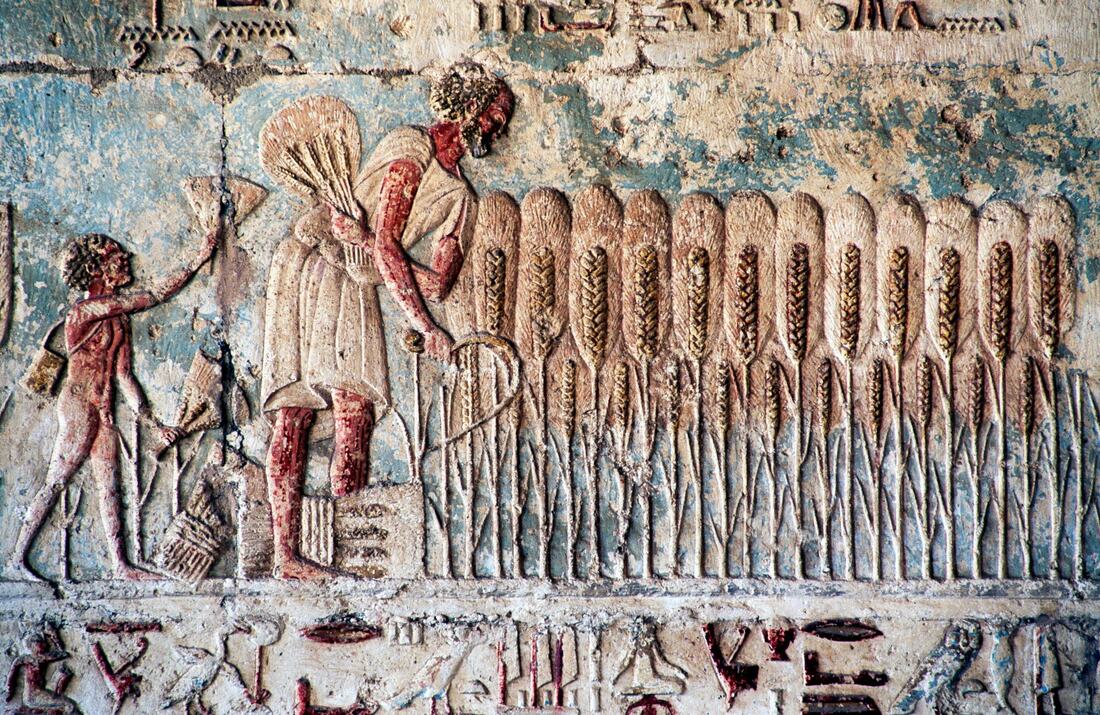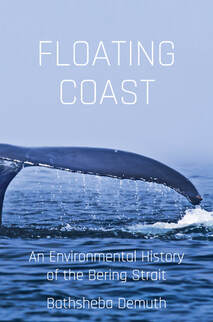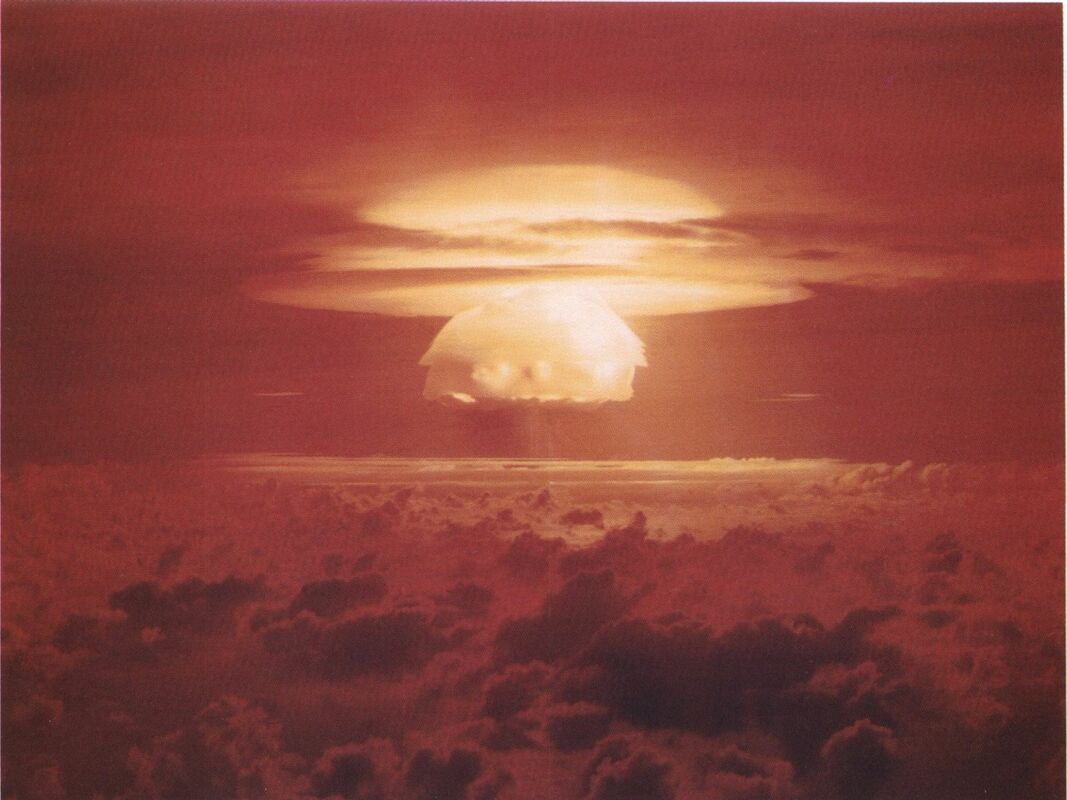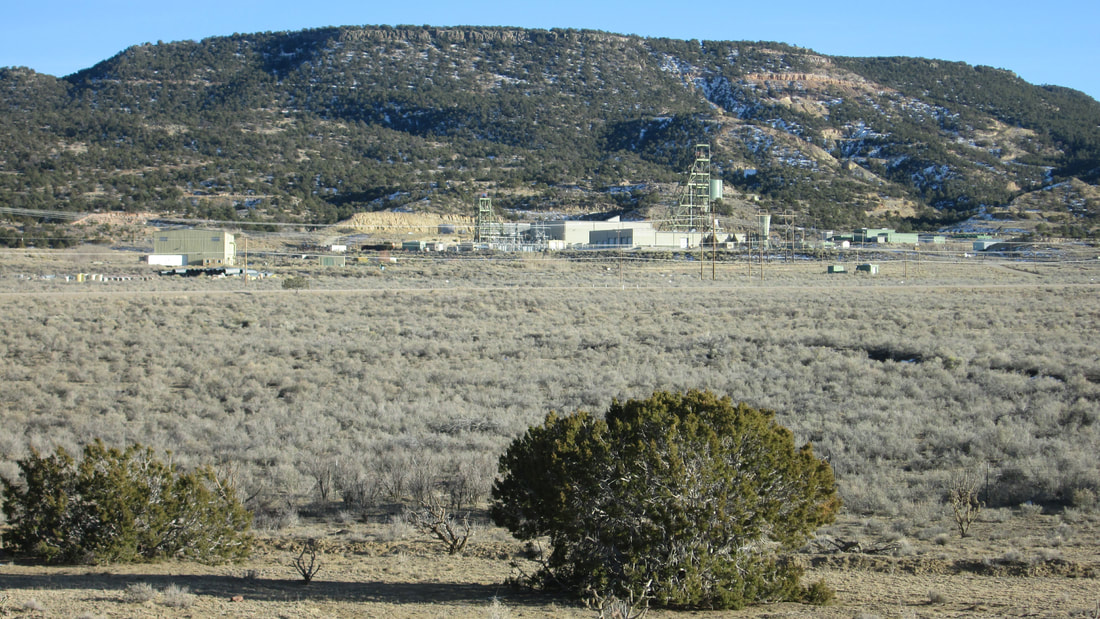
This site shares interdisciplinary climate change research with scholars, journalists, students, policymakers, and the general public.
https://www.historicalclimatology.com/
We explain how cutting-edge scholarship about past climate change can shed new light on issues relevant to present and future warming. While we love climate science in all its forms, we emphasize climate change scholarship in disciplines other than the sciences, including: history, economics, political science, and law. We also feature research that links past, present, and future climate change to the human experience.
Have past climate changes caused some societies to collapse, while others succeeded? Did past societies perceive climate changes, and to what effect? Is climate change responsible for present-day conflict? Can we trust computer simulations of future climate change, and why? This site explores all of these questions, and many more.
We were founded in April 2010, and we started as a research blog.
Dr. Dagomar Degroot, now a professor of environmental history at Georgetown University, was in the middle of a months-long archival trip to Amsterdam. He founded HistoricalClimatology.com to share his progress through seventeenth-century ship logbooks: a hot new source for scholars of past climate change. By the end of 2010, HistoricalClimatology.com was on course to receive nearly 10,000 unique hits for the year, many from interested lay people. The site had tapped into a popular desire for unconventional, interdisciplinary climate research that could shed new light on global warming.
Today, Historical Climatology.com provides bimonthly feature articles about climate change research, written by some of the most dynamic climate scholars. It offers monthly updates on the most interesting climate change web articles, and comprehensive quarterly updates on scholarship about past climate changes. It presents interviews with key newsmakers in climate change research, policymaking, and journalism, as well as updates on projects by leading interdisciplinary scholars. It provides extensive resources that let our visitors explore past climate changes for themselves.
We currently receive around 500,000 hits per year. Over 100,000 are unique hits.
Articles on our site have been widely used in university courses in the sciences and the humanities. We have been cited by BBC News, and listed among the top online resources on climate change. We are funded by a Georgetown University Research Infrastructure Award, and a Georgetown Environment Initiative Impact Program award. These awards allow us to expand our online and offline resources while remaining 100% ad-free.
HistoricalClimatology.com is associated with the Climate History Network, an informal organization of nearly 200 teachers and researchers interested in climate and history. Stories on HistoricalClimatology.com are usually posted on the CHN homepage, and both organizations share a Facebook page. However, whereas the CHN presents resources exclusively for academics, HistoricalClimatology.com reaches a much wider audience. Unlike the CHN, HistoricalClimatology.com explicitly links the latest academic insights about the past to our understanding of the present and future.
A Conversation with Joseph Manning: Climate Change in the Ancient World
4/30/2020

In the 14th episode of Climate History, co-hosts Dagomar Degroot and Emma Moesswilde interview Joseph Manning, the William K. and Marilyn Milton Simpson Professor of Classics at Yale University.
Professor Manning is a leading expert on the law, politics, and economy of the ancient world, particularly the Hellenistic Period (between 330 and 30 BCE). In recent years, he's led efforts to uncover a link between volcanic eruptions, climatic shocks, and rebellions in ancient Egypt: efforts that inspired headlines in the Washington Post, the New York Times, and elsewhere. Professor Manning explains how his team uncovered the influence of climate change in Egyptian history, and what the ancient world has to tell us about our uncertain future.
To listen to this episode, click here to subscribe to our podcast on iTunes. If you don't have iTunes, you can still listen by clicking here.
A Conversation with Bathsheba Demuth: Histories of the Changing Arctic
10/22/2019

In the tenth episode of Climate History, our podcast, Emma Moesswilde and Dagomar Degroot interview Bathsheba Demuth, assistant professor of environmental history at Brown University. Professor Demuth specializes in the lands and seas of the Russian and North American Arctic. Her interests in northern environments and cultures began when she was 18 and moved to the village of Old Crow in the Yukon, where she spent several years training sled dogs. In the years since, she has visited and lived in Arctic communities across Eurasia and North America. She has a BA and MA from Brown University, and an MA and PhD from the University of California, Berkeley. Her writing has appeared in publications from the American Historical Review to the New Yorker. Her first book, Floating Coast: An Environmental History of the Bering Strait is now out with Norton, and has received rave reviews in both popular and academic publications.
Professor Demuth is a returning guest. In our first interview, she introduced the major themes of what was then her doctoral dissertation, and is now Floating Coast. In this episode, she describes how she wrote the book, and what we can learn from it. She details her experiences in the Arctic, her deep engagement with the community of Old Crow, her thinking about non-human actors in historical stories, her success in writing for the general public, and her views on what the past can reveal about the future of the rapidly-warming Arctic.
To listen to this episode, click here to subscribe to our podcast on iTunes. If you don't have iTunes, you can still listen by clicking here.
The Nuclear Renaissance in a World of Nuclear Apartheid
3/27/2019
Prof. Toshihiro Higuchi, Georgetown University.
This is the fifth post in a collaborative series titled “Environmental Historians Debate: Can Nuclear Power Solve Climate Change?” hosted by the Network in Canadian History & Environment, the Climate History Network, and ActiveHistory.ca.

Nuclear power is back, riding on the growing fears of catastrophic climate change that lurks around the corner. The looming climate crisis has rekindled heated debate over the advantages and disadvantages of nuclear power. However, advocates and opponents alike tend to overlook or downplay a unique risk that sets atomic energy apart from all other energy sources: proliferation of nuclear weapons.
Despite the lasting tragedy of the 2011 Fukushima disaster, the elusive goal of nuclear safety, and the stalled progress in radioactive waste disposal, nuclear power has once again captivated the world as a low-carbon energy solution. According to the latest IPCC report, released in October 2018, most of the 89 available pathways to limiting warming to 1.5 oC above pre-industrial levels see a larger role for nuclear power in the future. The median values in global nuclear electricity generation across these scenarios increase from 10.84 to 22.64 exajoule by 2050.
The Cold War Constraints on the Nuclear Energy Option
3/13/2019
Dr. Robynne Mellor.
This is the third post in a collaborative series titled “Environmental Historians Debate: Can Nuclear Power Solve Climate Change?” hosted by the Network in Canadian History & Environment, the Climate History Network, and ActiveHistory.ca.
https://www.historicalclimatology.com/features/march-13th-2019

Mt. Taylor Mine in New Mexico. Author's photograph.
Shortly before uranium miner Gus Frobel died of lung cancer in 1978 he said, “This is reality. If we want energy, coal or uranium, lives will be lost. And I think society wants energy and they will find men willing to go into coal or uranium.”[1]
Frobel understood that economists and governments had crunched the numbers. They had calculated how many miners died comparatively in coal and uranium production to produce a given amount of energy. They had rationally worked out that giving up Frobel’s life was worth it.
I have come across these tables in archives. They lay out in columns the number of deaths to expect per megawatt year of energy produced. They weigh the ratios of deaths in uranium mines to those in coal mines. They coolly walk through their methodology in making these conclusions.
These numbers will show you that fewer people died in uranium mines to produce a certain amount of energy. But the numbers do not include the pages and pages I have read of people remembering spouses, parents, siblings, children who died in their 30s, 40s, 50s, and so on. The numbers do not include details of these miners’ hobbies or snippets of their poetry; they don’t reveal the particulars of miners’ slow and painful wasting away. Miners are much easier to read about as death statistics.
The erasure of these people trickles into debates about nuclear energy today. Any argument that highlights the dangers of coal mining but ignores entirely the plight of uranium miners is based on this reasoning. Rationalizations that say coal is more risky are based on the reduction of lives to ratios.
If we are going to make these arguments, we must first acknowledge entirely what we are doing. We must be okay with what Gus Frobel said and meant: that someone is going to have to assume the risk of energy production and we are just choosing whom. We must realize that it is no accident that these Cold War calculations permeate our discourse today, and what that means moving forward.

Mt. Taylor Mine in New Mexico. Author's photograph.
Shortly before uranium miner Gus Frobel died of lung cancer in 1978 he said, “This is reality. If we want energy, coal or uranium, lives will be lost. And I think society wants energy and they will find men willing to go into coal or uranium.”[1]
Frobel understood that economists and governments had crunched the numbers. They had calculated how many miners died comparatively in coal and uranium production to produce a given amount of energy. They had rationally worked out that giving up Frobel’s life was worth it.
I have come across these tables in archives. They lay out in columns the number of deaths to expect per megawatt year of energy produced. They weigh the ratios of deaths in uranium mines to those in coal mines. They coolly walk through their methodology in making these conclusions.
These numbers will show you that fewer people died in uranium mines to produce a certain amount of energy. But the numbers do not include the pages and pages I have read of people remembering spouses, parents, siblings, children who died in their 30s, 40s, 50s, and so on. The numbers do not include details of these miners’ hobbies or snippets of their poetry; they don’t reveal the particulars of miners’ slow and painful wasting away. Miners are much easier to read about as death statistics.
The erasure of these people trickles into debates about nuclear energy today. Any argument that highlights the dangers of coal mining but ignores entirely the plight of uranium miners is based on this reasoning. Rationalizations that say coal is more risky are based on the reduction of lives to ratios.
If we are going to make these arguments, we must first acknowledge entirely what we are doing. We must be okay with what Gus Frobel said and meant: that someone is going to have to assume the risk of energy production and we are just choosing whom. We must realize that it is no accident that these Cold War calculations permeate our discourse today, and what that means moving forward.
No comments:
Post a Comment